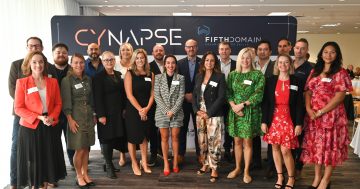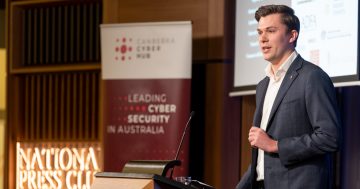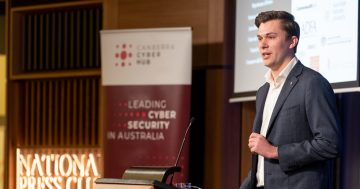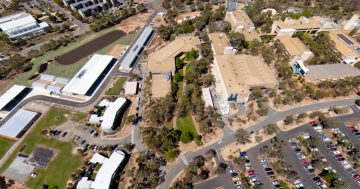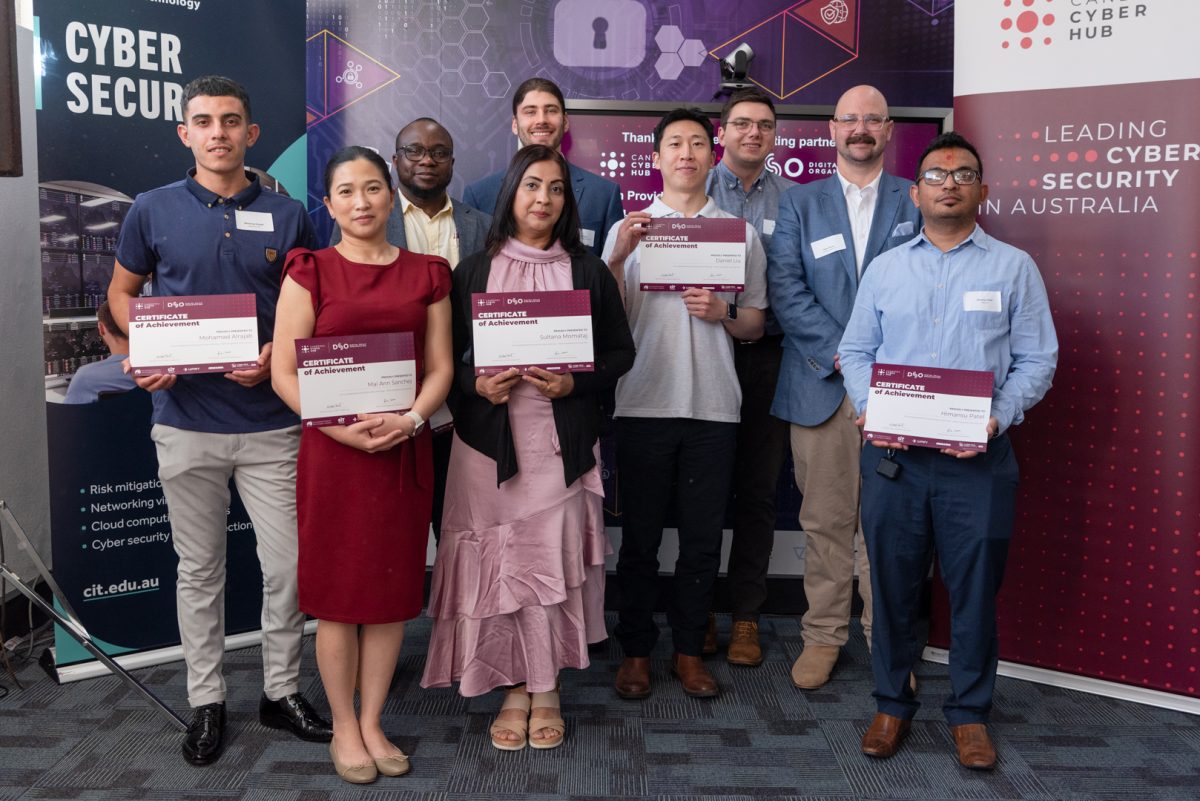
The first graduates of the Closing the Cyber Skills Gap – Work Integrated Learning pilot, a pioneering collaborative training program aimed at addressing the workforce shortage of cyber skills. Photo: Canberra Cyber Hub.
In a milestone event, the Canberra Cyber Hub recently celebrated the graduation of interns from the Closing the Cyber Skills Gap – Work Integrated Learning pilot program.
The program, delivered in collaboration with the Canberra Institute of Technology (CIT) and the Future Skills Organisation (FSO), aimed to address the workforce shortage of cyber skills by creating job-ready professionals through a unique blend of theoretical knowledge and hands-on experience.
Initiated in March 2023, the program comprised a four-week power-skills bootcamp, facilitated by CIT and designed to equip participants with theoretical insights.
The bootcamp was paired with hands-on training and real-world experience through paid placements with leading cyber companies in Canberra to form a holistic approach to skill development.
At the graduation ceremony, the interns-turned-graduates shared their challenges and achievements, showcasing their newfound expertise in cyber security through capstone presentations.
Students, even those without prior cyber security experience, lauded the program for its significant benefits.
Minister for Skills Chris Steele commended the graduates and emphasised the success of the pilot in developing a skilled cyber workforce.
He said the collaboration between ACT businesses, educational institutions and the Canberra Cyber Hub was pivotal in addressing the nationwide need for 18,000 cyber positions to be filled by 2026 – identified in a 2018 report by AustCyber.
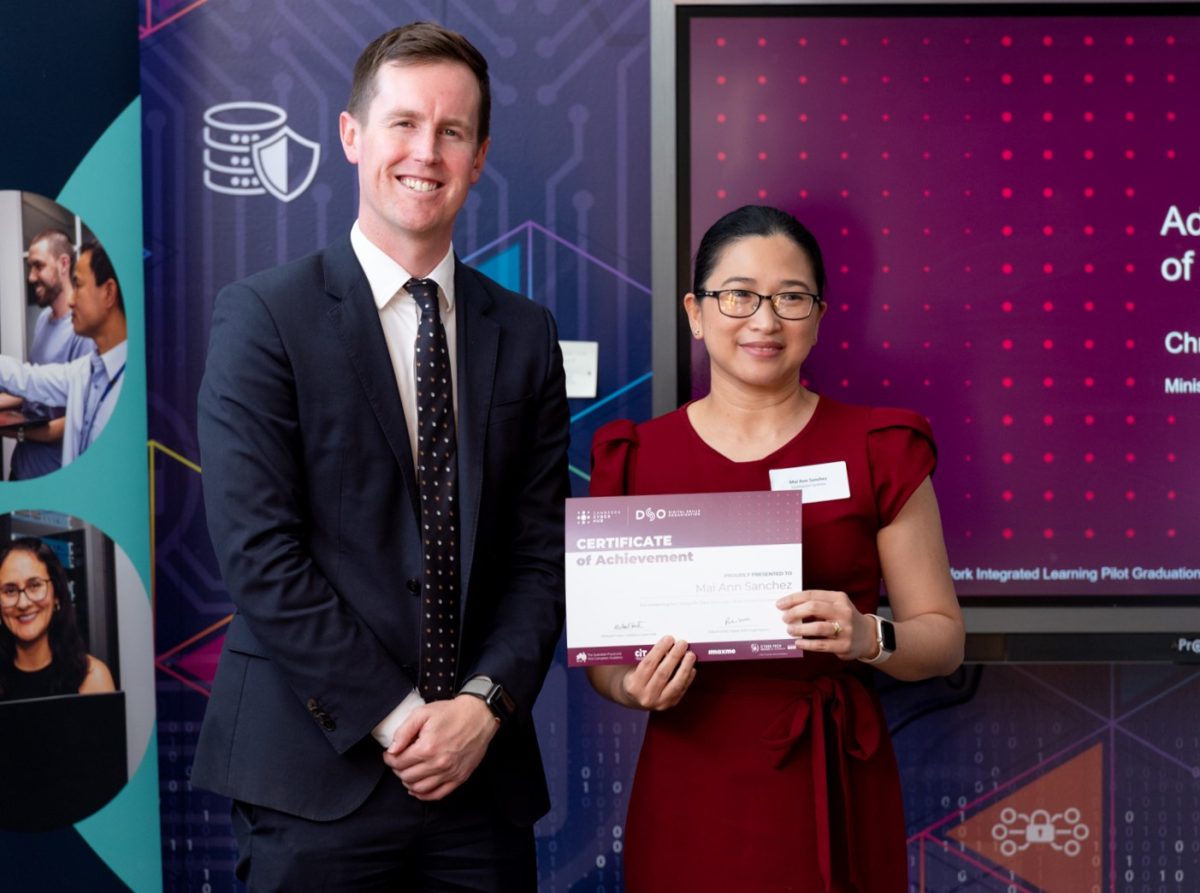
Minister for Skills Chris Steele with Closing the Cyber Skills Gap – Work Integrated Learning pilot program graduate Mai Sanchez. Photo: Canberra Cyber Hub.
Canberra Cyber Hub chair Dr Michael Frater said Canberra cyber companies were asked to identify not only the skills needed now, but the skills needed for lifelong learning.
“We did this to ensure a relevant career is maintained in this ever-changing industry,” Dr Frater said.
“Through the response of this program we have found an innovative path forward to help close the cyber skills gap.”
CIT interim CEO Christine Robertson said the need for such skills was undeniable.
“In a world where technology is advancing at an unprecedented pace, the need for cyber security professionals has never been greater. It is imperative we have a skilled workforce capable of safeguarding our digital infrastructure,” Ms Robertson said.
“This pilot program was designed with this urgent need in mind. This was a method to test new ways to bring more people into the cyber workforce, and to meet significant skills gaps in the industry.”
Demand for cyber professionals far exceeds the current supply.
Future Skills Organisation CEO Patrick Kidd said the pilot had been an interesting insight into models that could be scaled as they progressed to address the urgent need.
“This project is a great example of how you can work with employers to define needs and produce courses that are relevant to people who are mid-career,” Mr Kidd said.
Participating employers expressed satisfaction with the seamless integration of students into their organisations, praising the program’s flexibility.
One employer, Castlepoint Systems general manager of operations Lyndal Hughson, highlighted the program’s positive impact on her organisation and its flexibility in training interns, not only in cyber security, but in other topics relevant to the business.
As the pilot program undergoes review, future delivery methods are being assessed to continue making a meaningful contribution to closing the cyber skills gap.
More information on the industry and starting a cyber career journey can be found at Canberra Cyber Hub Careers.













